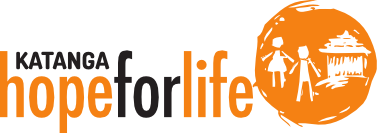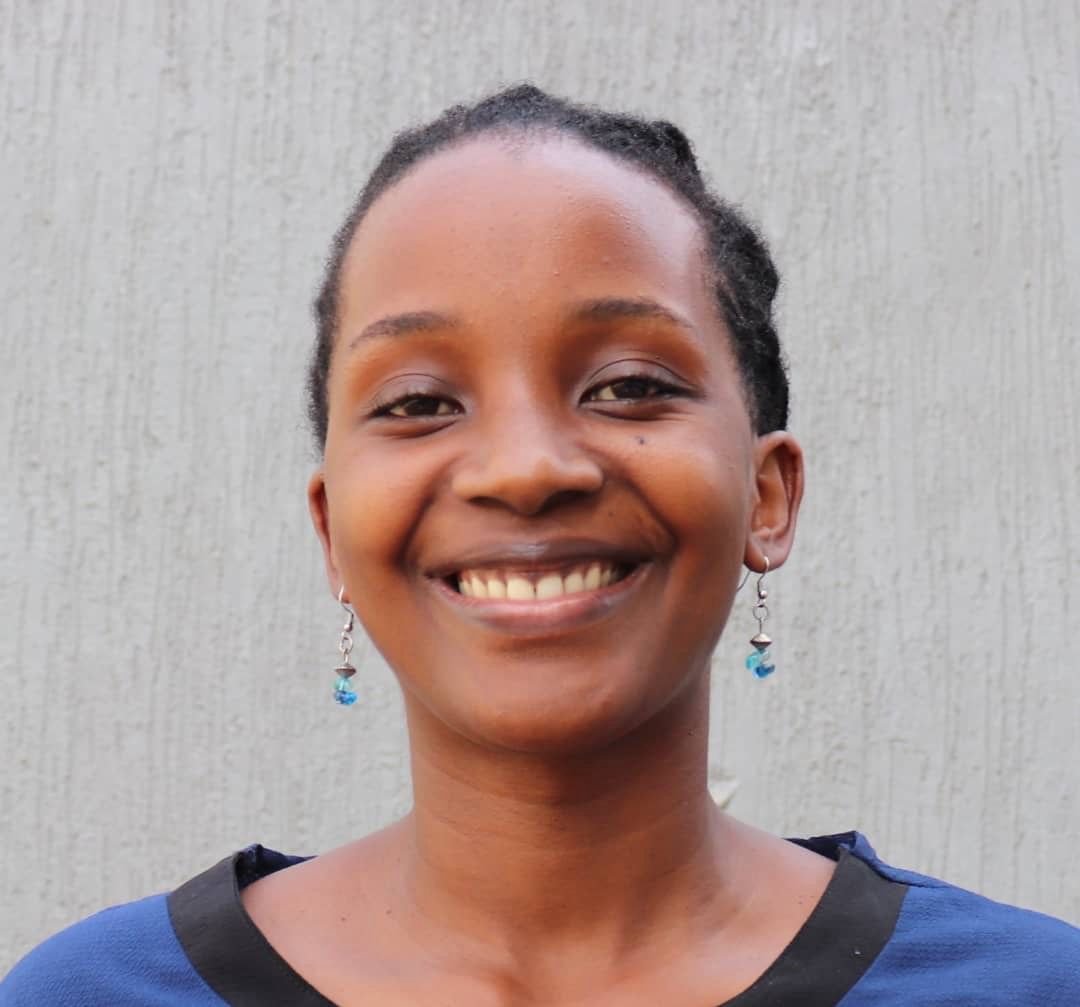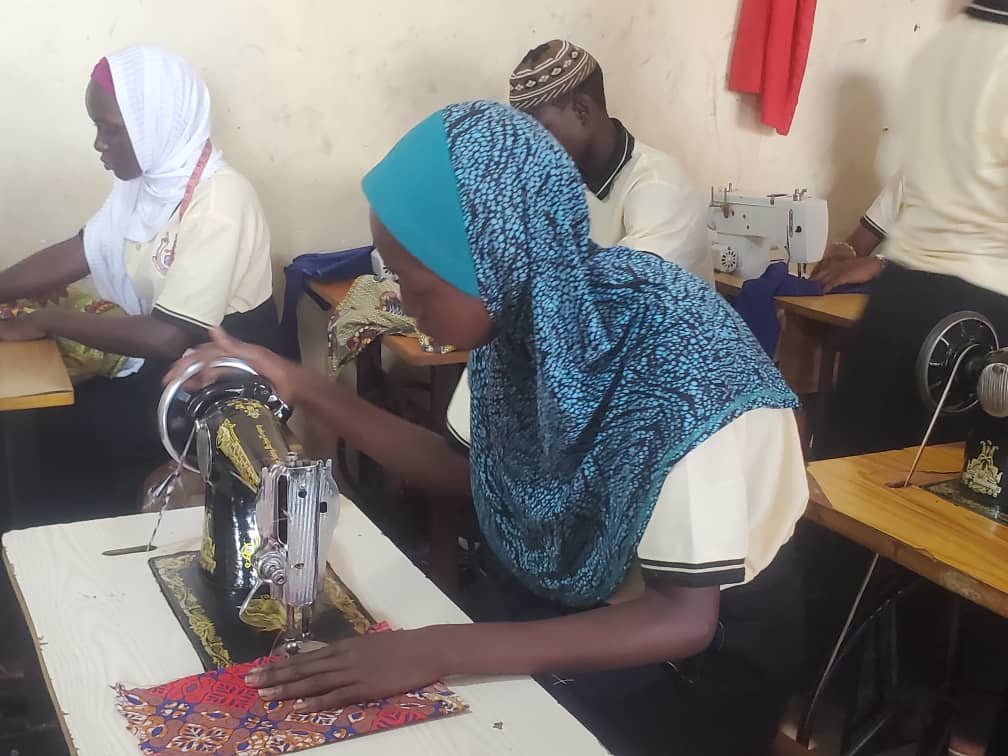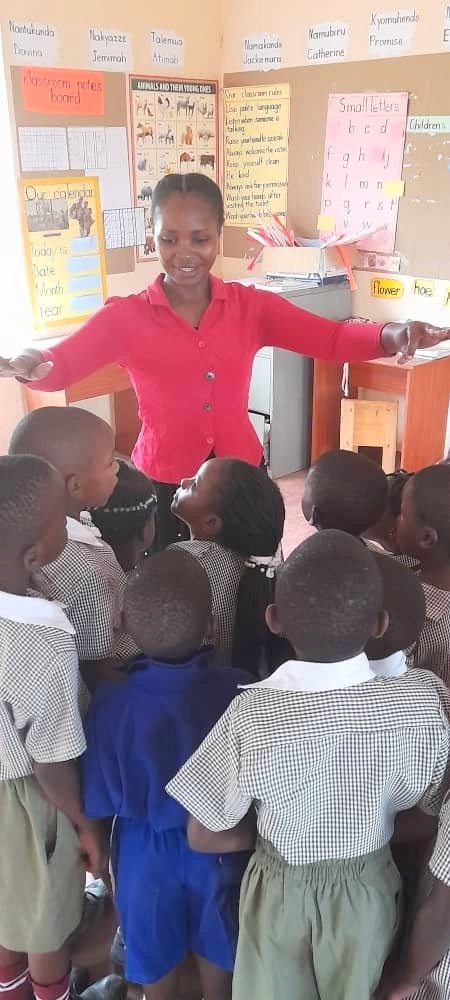A Year in Review 2024
I’m pleased to share with you a review of our work, as we serve families, providing education, vocational training and health care programs.
We are working together to empower families to independently afford the basic needs of life, which include; safe and secure housing, substantive and nutritious food, healthcare, and further education.
This year has been successful in many ways, and we hope you will celebrate those successes with us as you read this update. We also want to be honest about the challenges apparent to many families we work with, which help to inform our future plans. We also share some of the opportunities open to us to address these challenges and serve the wider vision in 2025.
The team and I take this opportunity to thank our donors and partners, who provide invaluable support towards the success of our programmes. I express gratitude to my colleagues for their work and support, and the trustees and directors for their guidance and commitment through the year.
Thank you.
Dorcus, Programs Manager
Educating Children
We provide education to improve the future potential of children to earn an income and become self-reliant.
With your help, we are sponsoring 55 children in to school, understanding that their educational needs are critical to a future free from conditions of poverty. Our organization aims to support underprivileged children and communities in Uganda while fostering social integration and family growth. We are currently helping 29 children in primary school, 21 in secondary school, and 5 in vocational training centers (VTC) to acquire valuable skills.
After 12 years, the first children sponsored in 2012 are starting to complete school, gain a vocational skill and earn an income.
Number of Students in Each School Year
-
We have continued to support the 55 children to school by giving them school fees and other basic school requirements like study tour fees. Primary 29, secondary 21, and VTC 5 children.
3 children were able to join secondary school after they successfully accomplished their PLE (Primary Leaving Examination) last year.
7 children have sat for their PLE exams.
3 children have accomplished their senior four level examinations.
5 children are progressing well in vocational training.
Regular school visits enable us to engage their teachers and understand the performance and behaviour of each child. We have registered great improvement in both performance and behavior change and it’s a credit to both the teachers, parents and HFLK for their joint efforts towards transforming these children.
Children have improved in confidence and self esteem, which has previously been a challenge. This is due to the education support given to them and the continuous follow-ups, with constant interactions with both the HFLK team and their respective teachers.
Improved parental academic support. Previously, Some parents were not supporting their children fully, for instance, providing scholastic materials required by their schools, extra pay for coaching, not visiting their children at schools, among others. We have seen an improvement in parents contributions towards their children’s education.
-
A lack of nutritious food due to low family income || Many families can not afford to feed their children well. Many go to school hungry, affecting concentration and performance levels in class.
Parents incomes are often tied to illegal work || Many parents work selling foods and other items on the streets. If caught, their goods are confiscated, leaving them struggling and financially crippled.
Social division causing a lack of parent engagement || Parents either can’t afford to travel to attend their children’s school to meet teachers, or they can’t speak English, which many of the teachers will expect to speak. Children then feel not supported or cared for, compared to other students.
Illiteracy of parents impacts children’s work || Parents with little previous education can not cross check homework, or provide extra teaching moments when at home, affecting children’s performance.
Stuggling children need extra classes, which parent’s can’t afford || Under resourced families are not in position to pay for extra classes that would be beneficial.
-
Seminars for parents where they can be receive guidance in navigating their children’s development. Seminars for children would help in social, moral, psychological, physical and spiritual aspects of their lives.
Extra income support especially for parents that need capital to boost their businesses.
Saving schemes taught to our parents to encourage saving to build their financial muscles and be able to establish capital for businesses.
A well established library would provide students with lots of additional reading opportunities and scholastic materials helpful for their studies.
Equipping Young Adults & Parents
We empower young women (aged 15-25) with life skills and vocational skills, restore their hope for a better future that had been shattered due to abuse, violence and having dropped out of school as a result of poverty.
This year we have worked with 30 young women, providing opportunities in vocational training, while addressing the challenges these girls face, so as to help them develop social skill, build confidence and improve employability. 10 women have completed our in-house training, 9 women have completed their 2 year training, 6 of which have received business start-up packages.
We conducted phone and in person interviews with the 39 girls who had previously completed vocational training to find out how our work had impacted their lives. Of the 32 we managed to contact 100% were employed and directly supporting the wellbeing of their families. 27 were working and earning from the professions they trained in with the other 5 employed but in another profession.
Number of Graduates Now Employed
-
Graduates of Vocational Training || Three girls graduated training from a vocational institution. Harriet, attained a Certificate in Hairdressing, Esther got a Diploma in Nursery Teaching and Eva was awarded a Certificate in Hairdressing. With the acquired skills, each has been able to get a job and changed their economic situations.
Recent Graduates || A group of girls who started vocational training in 2022 have completed their courses and are have recently turned to seeking employment. Many have already secured jobs, while others are optimistic about their future prospects, thanks to the skills they have acquired.
Entrepreneurial Ventures || Some girls have not only used the skills they acquired to get jobs, but they have also started businesses which give employment to other people and also train others. For example, Shanita opened a salon, which now employs two people and she has trained her young sister.
-
Enhanced Behavioral Development || our intentional engagement with the young ladies has lead to behavioural improvement. Reports from training centres have revealed that girls demonstrate improved behavior and active participation in training activities, indicating greater comfort and involvement in their learning environments.
Improved Social Skills and Positive Interactions || The girls have shown significant progress in how they interact with peers, trainers, and visitors. Their ability to communicate effectively reflects enhanced social skills and adaptability.
Strong Academic Progress and Good Assessment Reports || For those attending formal training institutions, assessment reports indicate substantial advancements in skill acquisition and knowledge retention. Informal training evaluations also show positive outcomes in practical skills.
Successful Public Speaking during Debate Participation | Organizing a debate for the current young ladies of the Girl Care Program (GCP) allowed the girls to effectively present and defend their points, demonstrating not only their understanding of the topic but also notable confidence in public speaking.
Inspirational Testimonies Sharing Success Stories || Girls who completed five years in the GCP shared their experiences during workshops, inspiring ongoing participants. Their willingness to speak in front of an audience of strangers highlighted their growth in confidence and communication abilities.
Empowerment Through Peer Support and Supportive Environment ||The collaborative atmosphere fostered among the girls has enabled them to encourage one another, contributing to their overall confidence and sense of belonging within the program.
-
Unstable economic status || As every parent wishes the best for their kids, some of the beneficiaries and their guardians choose vocational training institutions with tuition fees higher than the amount HFL offer, with the belief that they will top up. But along the way, due to unavoidable circumstances, they fail to meet the top up. This leads to girls missing training and at times they have to change training institutions. This sets back their progress.
Lack of support from guardians || Most of the girls do not get the extra support they need like lunch provision and adequate time for training. Some of the girls are not provided with lunch and so being hungry, they cannot concentrate on learning. Some guardians ask them to stay home at any time to do chores or take care of their young siblings. These all impact the progress of the girls.
Lack of working capital || Although the family’s of the girls in training are trying to run small businesses, their working capital is little and they provide minimal income compared to their daily expenditure. For those who manage not to eat through the capital, their businesses remain stagnant because they do not save enough to reinvest. So, there is no positive change in the economic situation.
-
Introduce Computer Classes || We have done well in teaching literacy (reading and writing). The girls did not know much when they came to us but have now well improved. But to further enhance and continue growth professionally, I recommend that we start practical computer classes for the girls. In this digital era, for someone to keep up with the ever-changing world, one has to know how to navigate a computer. And the best way to do so, is learning to use the technology.
Annual workshops for further training, coaching and encouragement || In these workshops, not only do the students get productive and educational advice, but they also get relational experiences from the girls who have graduated through the programme. These workshops also show the old girls that their success holds great significance, not only for themselves but to the society at large.
Preventing Ill-Health
Good health is vital to keep children in education and parents in employment. We provide health education, guidance and provide health related funding opportunities for those we work with in Katanga.
Number of People / Families Receiving Health & Hygiene Support
-
All the children received regular deworming medication to reduce diarrhoea and improve nutrient intake. About deworming
8 girls in targeted age group were immunized against HPV to prevent cervical cancer. About HPV
All girls and young women we work with received sanitary towels in partnership with Maka Pads, Art Youth Clinic Entebbe, Milts Charity Drive, to improve women’s health & hygiene. About MakaPads
98 Food packages were distributed, with support from Milts Charity Drive, along with some clothes and shoes. Many families are still struggling to recover after the pandemic period where many were without work. Food packages help to address some of the more short term needs, while we continue to invest in long term change.
We advised parents to receive check ups from hospitals. One example includes a mother, who had appendicitis. After receiving counsel from the HFLK, she quickly got to the hospital for proper diagnosis and was able to have an operation, receiving treatment before it got significantly worse. She is healing well.
Provided counseling sessions throughout the year improving family relationships. One child, for example, had become a challenge to the parents because he used to skip classes and was confrontational with his mother. We provided continued counseling and suggested boarding school as an option. Joshua is today a changed person compared to before joining the boarding section. Many children who have gone through counseling have not remained the same.
-
A large number of those we work with are unaware of how to take care of their bodies. Some appeared to be even shy about approaching a doctor for regular check ups and treatment.
Most parents are not in position to pay their medical bills, which adds to the fear of attending hospitals.
Some parents struggling with low self esteem and a lack of information, which prevents them from having important conversations especially with their adolescent children. Children then turn to their misinformed friends for health information.
Most families are regularly starving due to insufficient funds in the family. One meal in a day is common, contributing their sicknesses and diseases, for instance, ulcers and malnutrition.
Some families have no mosquito nets and this has increased the rate of malaria.
Many families are not diligent with health issues, including family planning, hygiene, living in a clean environment, sleeping in mosquito nets among others, which has caused them unavoidable sickness
Some families have children who are battling with disabilities, including cerebral palsy and other unknown illnesses that have stunted a child’s development. These Chronic illnesses can require expensive daily medication.
-
Health Education seminars should be put in practice for people to be taught thoroughly about healthcare and prevention
Collaborations with organizations can bring in specific expertise and increase our healthcare reach in the community.
External and highly trained Counselor could create more impact among the lives of families.
A project Nurse would reduce the cost to parents from paying for basic consultation and treatment.
Regular food packages would ensure children do not go hungry.
A Massive Thank You
Last year, we highlighted the four areas we wanted to invest in to address the challenges families were facing. An early fundraiser, a number of one off donations, and new regular givers has allowed us to make progress in each area. We have:
Marginally increased the school fees given for child sponsorship in 2024, countering the increase in inflation and poor exchange rates. These will be increased by £2,000 across 55 families in 2025.
Paid for deworming medication for 88 students twice in 2024. We can sustain this for the foreseeable future.
Provided vocational training for another 10 young women in 2024.
We weren’t able to provide the addiction therapy for those with substance abuse issues, as a result of loosing work savings during the pandemic. Recent donations will allow us to provide this to those struggling in 2025.
Thank you for your support during 2024. By donating, you are helping to create more opportunities for children, young adults and guardians in Uganda to earn an income, afford the basic needs, and live fulfilled lives.
Focus for 2025
Education and vocational training lead to empowered individuals and self-reliant families.
There are consistently 20+ on our waiting list to benefit from vocational training. We would like to provide more of these opportunities, to young mothers in particular, understanding that if mothers can be skilled early, then they have a greater chance of sending their young children to school when the time comes. They can better provide nutritious food, safe housing and afford basic healthcare.
Please do consider whether you can provide this opportunity for young mothers for £30/month.
We have successfully given grants to graduates to buy the necessary equipment to start-up businesses. We haven’t been able to give this opportunity to everyone graduating in the past. We are pleased that in 2025, donors have already come forward to provide this opportunity to up to 10 young women who would benefit each year.
It is evident, however, that the parents of sponsored children have struggled the most during the pandemic. Businesses have been reduced, jobs have been lost, and savings spent. Without capital, these parents are struggling to reignite their businesses post-covid. Providing these grants to parents is important to lift families above the water of recent economic challenges. Families are struggling to buy one meal a day or basic medication. We give £180 grant per person to buy equipment (sewing machines, materials, hairdryers, shampoos, tools, stock etc.). This capital will boost daily earnings to afford the necessities for their family’s development.
Can you give £15/month, or a one off donation this year to reignite a business?





















